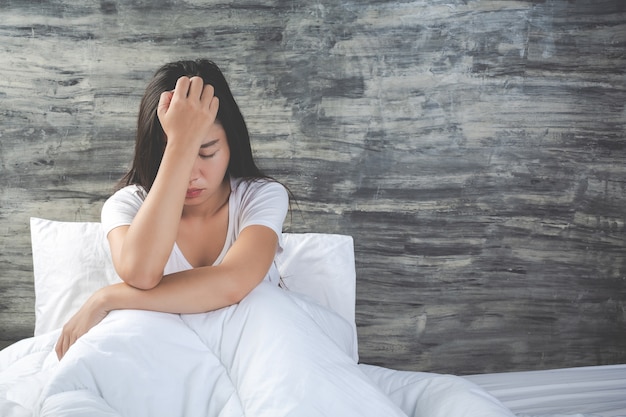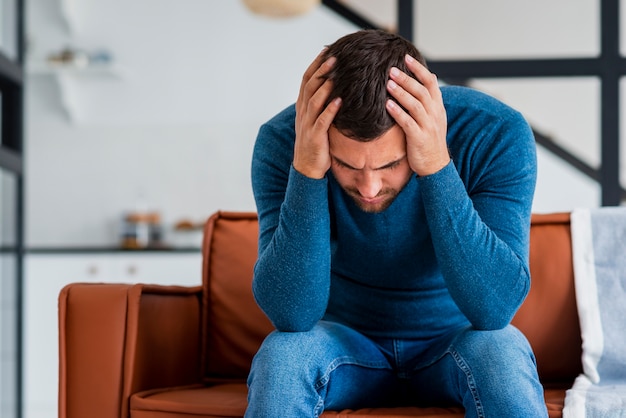Living with Chronic Pain: How It’s Affected by the Mind-Body Connection
Pain perception, beliefs about pain, and coping mechanisms are important factors in predicting the outcome of treatment when dealing with injury and pain. Unrealistic or negative thoughts about an ongoing pain problem may contribute to increased pain and emotional distress, decreased functioning, and greater reliance on medication. Ultimately, the mind-body connection plays a large role in living with chronic pain (and coping with it).
Is your mindset affecting your pain?
When pain and injury come into play, how we choose to cope with our symptoms is paramount to our recovery. If we choose negative, maladaptive beliefs, they can actually perpetuate the problem (leading to chronic pain). On the other hand, we can choose to ignore the pain, find positive coping mechanisms, and/or remain active to divert our attention from the pain with the hope that relief and healing will come with time.

Chronic pain and the power of placebo.
A placebo is a medical intervention — be it a pill, injection, or sham surgery — that has no therapeutic value. The placebo effect refers to the real psychological and physiological benefits that these inert interventions can have. As one example, some studies have shown that a placebo can affect blood pressure; a clear physiological response. A placebo is a normal part for testing and comparing benefits of potential medical treatments. Yet the placebo effect is SO much more, it is proof that our minds and bodies are truly powerful in overcoming illness and adversity.
Making ourselves the “placebo.”
So how do we harness the power of a placebo for our own use? Brain anatomy and personality type may influence susceptibility to the placebo effect.
In chronic pain trials (usually involving medications), the placebo effect can often be as great as the response to the treatment that is being tested. In fact, the response to a placebo can sometimes be more significant than the response to conventional treatment.
It all starts with believing in your ability to heal.
Whether you take a sugar pill, start a new exercise program, or start meditating, they all have the potential to help. Simply believing in the process and having the intent of starting a treatment (with the hope of feeling better) can significantly increase the chance of success. If you’re struggling with chronic pain, find a treatment option that truly believe works and are excited to try, and you are already halfway to your cure!

The emotion–pain connection.
Chronic pain and emotions are so intertwined that it’s often hard to tell where one ends and the other begins. People with depression, for example, have about a three times higher risk of developing chronic pain. On the other hand, those with chronic pain have about the same increase in risk for being diagnosed with clinical depression.
Chronic illness and the connection to chronic pain.
Multiple studies of chronic disease, such as osteoarthritis, rheumatoid arthritis, lupus and fibromyalgia show that people who experience more negative emotions also report more pain. Not surprisingly, people with these conditions also have substantially higher rates of depression and other mood problems compared with those without arthritis and related conditions.
Relieving depression and anxiety makes people feel better physically, too, and most types of medications used to treat these conditions can also be prescribed to help relieve pain.
Strong emotions elicit strong physiological responses.
Advanced imaging of brain processes is helping scientists understand how the mind-body connection is so strong. Negative emotions put us in a state of stress that makes it hard for the body to cope and heal. As times goes on, our mental and physical health become part of a strong circuited loop (a subconscious habit) that can feel impossible to break.

Stress and chronic pain.
No matter what the original cause of your pain, stress exacerbates the pain. Whether it’s from illness, depression, insomnia, relationship or financial problems, stress affects every part of our physiology mostly due to nervous system circuitry and hormone balance.
How stress affects our musculoskeletal system.
Stress makes us tense and nervous – literally. Our muscles become tight, particularly in the low back, mid and upper back, shoulders, neck, head, forehead, and jaw. Plus, we also feel it in our gut with upset stomachs, reflux, diarrhea, among other things. All of these issues can then snowball to adaptive behaviors that lead us to avoiding certain situations, exercises, movements, and more.
The never-ending chronic pain cycle.
Chronic pain causes more pain, go figure! This is due to issues with pain avoidance, the stress that it causes, and other imbalances that get worse and leave you feeling miserable. The firs step to breaking this cycle is being aware of it. Then taking small steps to better manage your stress and start moving more can make a world of difference.
Prevention of chronic pain.
Here are a few things you can do to help prevent chronic pain:
- Don’t ignore acute pain. Make sure to pursue adequate and prompt treatment when experiencing acute pain.
- Engage in a healthy lifestyle. Ensure that you include regular exercise, good nutrition and weight management in your regular schedule. It is also important to quit smoking and limit alcohol consumption.
- Maintain strong social supports. Stay connected to your family, friends and co-workers.
- Get enough sleep. Sleep restores your energy and allows the body to heal itself so that you can better manage pain.
- Reduce your stress levels. Follow any of the techniques above. Plus, get organized, use stress management techniques and plan ahead to reduce stress both at home and at work.
- Update your work station. Make sure you have good ergonomic design in your workplace. Try to negate sitting all day with a standing desk if possible.
- Use appropriate headrest and seat belts in motor vehicles. Using your head restraint appropriately can reduce the chance of whiplash injuries in rear-end collisions by 35% (a very common cause of chronic pain).
- Avoid high-risk sports and other hazardous activities.

How relaxation helps.
Relaxation techniques can be different for everyone – from meditating or doing breathing exercises to crafting or gardening. However, the results are the same: relaxation aids in the reduction of stress, which can benefit your whole body. It gives the body time to heal, the mind time to create a positive atmosphere, and put the entire mind-body connection back in balance.
The mind-body connection is truly amazing. This article doesn’t even start to touch on all the complexities of this issue in dealing with chronic pain. However, simply having an understanding of how this work for your own chronic pain (or for suffering loved ones) can be the first step in breaking the nasty cycle you might feel stuck in.
While chronic pain certainly doesn’t go away overnight, be hopeful for a better tomorrow, one step at a time.
What chronic pain are you, or a loved one, dealing with that could use a dose of awareness and relaxation?




